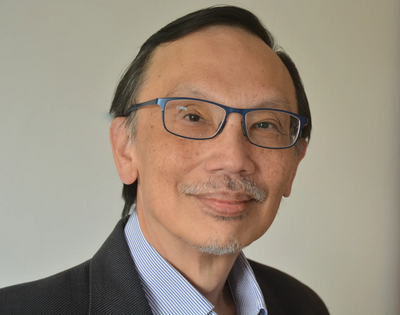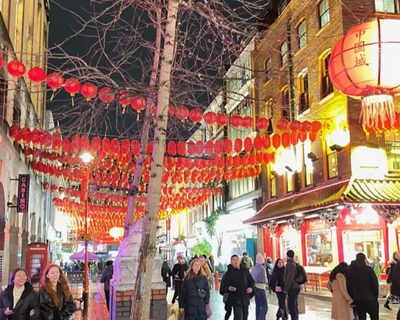Spring Festival : What Shall We Call It?

The celebration of a New Year to welcome spring is practised by many people in East and Southeast Asia. The celebration is usually referred as the Spring Festival in China. Chinese people and the Chinese diaspora generally greet each other with Happy New Year or Prosperous New Year (in Mandarin, Cantonese and the many other Chinese dialects). In some other East and Southeast Asian countries, for example Vietnam, the celebration is called 'Tet' and the Vietnamese would greet each other in their language with Happy New Year. Similarly, the Koreans celebrate 'Seollal' and greet each other in Korean with Happy or Lucky New Year.
Japan used to have a similar celebration but adopted the Gregorian New Year in 1873. In Tibet, the celebration is known as 'Losar', which means New Year and the dates are based on the Tibetan calendar. It should also be noted that within East and Southeast Asia there are communities and countries that have their own New Year, such as the Islamic New Year or Hijri New Year. Buddhists, depending on the sect they belong to, will celebrate Mahayana New Year and Theravada New Year.
Nobody in the East and Southeast Asian countries that celebrates the coming of spring says Happy Chinese New Year, Happy Vietnamese New Year or Happy Korean New Year amongst themselves in their own languages. Neither do people say Happy Lunar New Year in their own languages. The problem of what to call the celebration of the coming of spring stems from attempts to differentiate a New Year celebrated by a vast number of people, based on the moon, with the solar Gregorian New Year on 1st January. By the way, the dates for the Spring Festival are not based on a lunar calendar but a lunisolar calendar, which combines both lunar and solar elements.
For many years, the largest diaspora of East and Southeast Asian people in the West would be people of Chinese heritage, whether from mainland China, Hong Kong, Malaysia or Singapore. Many of these early immigrants started catering businesses, opening up Chinese restaurants and takeaways. In major cities, the concentration of Chinese businesses in some areas resulted in Chinatowns. The celebration of the Spring Festival by the predominant Chinese communities led to the use of Happy Chinese New Year by Westerners and Chinese people when greeting in English.
However, over time, things change. In the UK (where I live), there are now sizeable populations of other East and Southeast Asia communities, for example, Vietnamese, Koreans and Japanese. Also, for personal and/or political reasons there are people from Hong Kong and Taiwan, who want to differentiate themselves from mainland China. Hence, starting from a few years ago, there is a trend to rename Chinese New Year to Lunar New Year. In particular, this year in 2023, it became a source of disagreements, even conflicts, on social media.
Two examples :
• Chinese actor Wang Hedi got into trouble when he posted Chinese New Year greetings on Instagram, using the phrase "Lunar New Year". His account was taken over by angry Chinese netizens and the post was republished with "Chinese New Year."
• Danielle, a member of the Korean girl group "New Jeans", used the phrase "Chinese New Year" to her fans, was criticised by South Korean netizens and had to apologise for making an inappropriate statement.
So, what name shall we use when 2024 comes around?
Personally, as a 67 year old British Malaysian Chinese, I am happy with my Chinese heritage and I resonate better with Chinese New Year than Lunar New Year, as it is what I grew up with. Of course, younger generations growing up through different socio-political conditions will have other perceptions. Hence, we should acknowledge and respect our differences. Although I would like to be greeted with Chinese New Year from my friends, I would use Happy Tet with Vietnamese, Happy Seollal with Koreans and Happy Lunar New Year for those who prefer it.
From a liberal democracy perspective, it is critical that we recognise diversity and promote inclusivity. However, diversity and inclusivity are about adding and promoting other communities, their cultures and their beliefs and, in doing so, transform the mainstream narrative. It does not mean cancelling out those who identify with a certain culture. As a British citizen of Chinese heritage, I do not want the Chineseness in celebrating the Spring Festival to be cancelled. Although I don't mind people greeting me with Happy Lunar Year, I would resist a situation whereby Chinese New Year can no longer be used and must be replaced with Lunar New Year. For many of us in the Chinese diaspora, it is Chinese New Year, whilst acknowledging some prefer Lunar New Year. For Vietnamese people it is Tet and for Koreans it is Seollal. They all have equal value, there are differences and we should acknowledge each other and celebrate together.
More importantly, a change of name matters not if nothing else changes. In some UK cities, although the celebrations are named Lunar New Year in attempts to be inclusive, the programmes were almost (or entirely) Chinese, i.e., chinese dances, chinese songs, chinese speeches. Perhaps, in the spirit of inclusivity, it is time that the organisers invite other East and Southeast Asian communities to participate. Similarly, institutions like local authorities who support the celebrations could be more aware of the diverse East and Southeast communities and nudge the organisers towards inclusivity. The British Museum that got into difficulties with 'Join us in celebrating the Korean Lunar New Year …' would likely had no trouble if it had used 'Join us in celebrating the Korean Seollal New Year …' or simply 'Korean New Year'.

